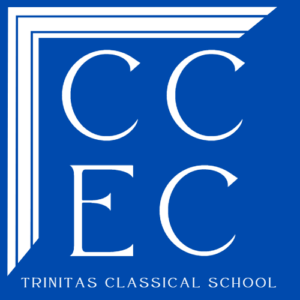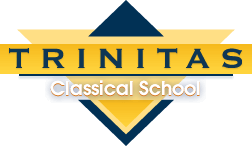 Later today, we will have the joy of “coming together” to sing and pray and hear God’s word in an all-school Zoom chapel. “Zoom chapel.” How many of us knew what those words meant just two months ago? They would have sounded very strange back then, but not any longer. One obvious reason for their new familiarity is that Zoom has very quickly become part of our daily lives. The second reason is that this technology is enabling us to do something we have always done, something we were made to do: worship our Lord together.
Later today, we will have the joy of “coming together” to sing and pray and hear God’s word in an all-school Zoom chapel. “Zoom chapel.” How many of us knew what those words meant just two months ago? They would have sounded very strange back then, but not any longer. One obvious reason for their new familiarity is that Zoom has very quickly become part of our daily lives. The second reason is that this technology is enabling us to do something we have always done, something we were made to do: worship our Lord together.
Human beings in all times and all places have asked variations of the question, “What were we made for?” A classical way of asking the question is, “What is humanity’s telos or end?” Aristotle devoted a lot of attention to this question. One way to understand the idea of a telos is to think of an acorn. An acorn has an inherent tendency to grow into an oak tree. It fulfills its potential, its purpose, its end by becoming an oak tree. This does not happen by craft or chance; it is part of its very nature. The acorn was made to be an oak tree. Do human beings have a telos? And if so, what is it? Pleasure? Health? Wealth? Success? Fame? Honor? Relationships? Whatever one chooses?
According to Aristotle, human beings do have a telos. Our end, that which we were made for, is eudaimonia. This Greek word is often translated as “happiness,” but it is not a transitory emotional state of feeling good. A better translation is “flourishing”; this contains the ideas of completion, perfection, and well-being. For Aristotle, eudaimonia can only be found in a life of virtue. Human beings were made to flourish in living a virtuous life just as an acorn was made to become an oak tree.
St. Thomas Aquinas built on this Aristotelian foundation by expanding the idea of eudaimonia. According to Aquinas, our ultimate end, the primary reason for which we were made, is union with God. Virtue is part of eudaimonia but not its entirety. Aquinas also recognized an important hinderance. Sin gets in the way of this union and so in the way of our flourishing. But, by His grace, God transforms and restores our nature to live as He intended us to live.
What does all this have to do with COVID-19 and our Zoom chapel? The connection may become evident when we consider the prayer one of our eighth graders will pray for us today: “O God, Who makest the minds of Thy faithful people to be of one will, grant us so to love what Thou commandest and to desire what Thou dost promise, that among the changing things of this world our hearts may be set where true joys are found. All which we seek in the name of Jesus Thy Son.”
Notice the line, “that among the changing things of this world our hearts may be set where true joys are found.” Things in this world are certainly changing, but our flourishing as human beings is not dependent on those things. If we were living as if our end consisted in health, wealth, success, or any number of worldly things, it should be clear by now that those are not “where true joys are found.” We were made to find our ultimate happiness in union with God. That is something that can never be taken from us. “For I am persuaded that neither death nor life, nor angels nor principalities nor powers, nor things present nor things to come, nor height nor depth, nor any other created things, shall be able to separate us from the love of God which is in Christ Jesus our Lord.” (Romans 8:38-39) Let us rejoice that in the midst of all the changes in the world around us, we can continue to do what we were made for.
